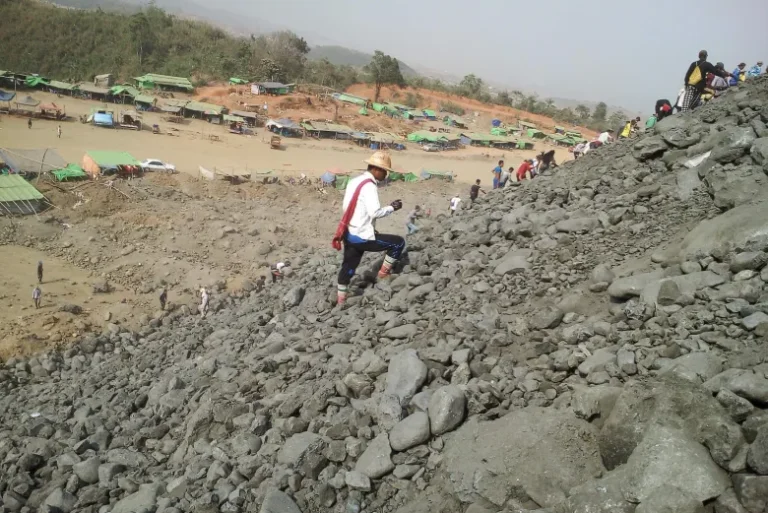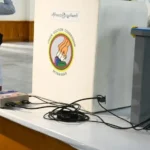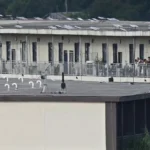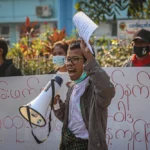
Eye on rare earths, Trump handing Myanmar to China
The US Treasury Department’s decision to lift sanctions on allies of Myanmar’s military junta last Friday (July 25) marks a stark reversal of decades-long American foreign policy.
These sanctions, imposed by the Biden administration on the anniversary of the 2021 coup, were a gesture of solidarity with Myanmar’s pro-democracy movement and a country that has endured relentless bombing and repression at the hands of a brutal military regime.
Lifting these sanctions marks the latest episode of “Trump’s craven war on Myanmar.” And they hand China yet another strategic victory in Southeast Asia.
From a moral standpoint, this move is sadly unsurprising. Trump has already abandoned Ukraine to Russia’s onslaught, advocated for the ethnic cleansing of Gaza and is actively dismantling what remains of American democracy. But this is not just a moral failure; it is a strategic blunder of the highest order.
The rationale behind the policy shift remains opaque – the US government has offered no explanation. But the timing is curious. Just days earlier, Congress passed three bipartisan bills reaffirming support for Myanmar’s resistance to military rule and pledging continued financial sanctions against the junta.
Junta leader Senior General Min Aung Hlaing had also just lavished praise on Donald Trump during trade negotiations. Perhaps this is merely another instance of Trump’s foreign policy being steered by personal flattery and narcissism.
But the motives behind this move appear more calculated. Business lobbyists seem to have persuaded Trump that Myanmar’s rare earth metals, vital for everything from smartphones to missile systems, could be a strategic asset for the US.
Indeed, Myanmar has emerged as a key global supplier of these critical minerals, especially after China curtailed its own environmentally destructive mining operations and turned to Myanmar to fill the gap.
But here’s the catch: Myanmar’s rare earth mines are not controlled by the junta. They are under the authority of powerful ethnic armed organizations (EAOs) that govern territory along the Chinese border. The Kachin Independence Organization (KIO), one of the world’s oldest rebel movements, seized what may be the world’s largest heavy rare earth mines last year.
This development has not gone unnoticed in Washington. Some lobbyists are now advancing two proposals: either the US should work directly with the KIO to extract these resources, or it should broker a bilateral peace deal between the KIO and the junta to enable joint exploitation.
The first idea is logistically absurd. Kachin State is landlocked and surrounded by junta-controlled territory, war zones with the presence of a myriad of other armed groups, remote regions of northeastern India, and China.
The second proposal is even more misguided. It reflects the worldview of DC business lobbyists, who reduce a decades-old political movement to a mere business enterprise. If the KIO were motivated solely by profit, it would have already caved to Chinese pressure for a bilateral ceasefire. It has not, because its goals are political, not commercial.
The KIO has long fought for autonomy and has been a key supporter of the countrywide resistance against the junta. Short of international recognition and the sale of sophisticated weapons, the US has little to offer that would make such a deal worthwhile. Certainly not enough to risk alienating China, whose relationship the KIO depends on for survival.
Meanwhile, the sharpest increase in rare earth mining is occurring in areas controlled by the United Wa State Army (UWSA), Asia’s most powerful non-state army. The group, which emerged from the remnants of the Communist Party of Burma, remains armed and supported by Beijing.
The idea that the US could gain a meaningful foothold in Myanmar’s rare earth sector is not just naïve; it is nonsensical. Worse, it risks playing directly into China’s hands.
Beijing already wields enormous influence over Myanmar. The brutal USAID cuts earlier this year have further strengthened China’s position to manipulate Myanmar politics. The lifting of sanctions now risks cementing this dominance.
Myanmar’s generals will welcome the change. They will use it to legitimize their planned sham elections and bolster their propaganda, both at home and abroad. But they will not abandon China, which remains their most reliable source of weapons, funding and diplomatic cover.
Meanwhile, the country’s resistance movement, now controlling more than half of Myanmar’s territory, has been left in the cold. Despite promises of non-lethal aid under the Burma Act, the Biden administration failed to deliver.
Western support in general has been largely symbolic, limited to patchy sanctions, humanitarian relief, and words of sympathy. And now, even that symbolic support is being rolled back.
After years of empty rhetoric, Myanmar’s resistance fighters have little reason to trust the West. But this latest betrayal may force them to forge closer relations with China. This won’t happen overnight.
Beijing remains wary of the National Unity Government (NUG), formed by ousted lawmakers from the National League for Democracy. But among Myanmar’s 20-plus EAOs, which field the strongest resistance armies, the calculus might shift. Some, like the UWSA, have long-standing ties to China. Others, like the KIO, have historically looked West.
But the KIO is not a monolith. Like other EAOs, it is a complex political organisation comprising leaders with differing perspectives and strategic priorities. To some KIO leaders, reports that Trump plans to partner directly with the KIO in extracting rare earth minerals will surely sound appealing.
We can expect them to use it in their own diplomatic strategy, including as leverage in relation to China. Ultimately, however, the KIO understands the futility of such misguided proposals, especially when they serve to ease pressure on the junta.
Here too, Trump’s policy then risks sidelining pro-Western voices and empowering those who favour closer ties with Beijing. This is the real danger of Trump’s foreign policy. It is not simply immoral or incoherent.
But it accelerates a tectonic shift in Southeast Asia, one that will leave China stronger, the US weaker and the people of Myanmar more isolated than ever.
Dr David Brenner is associate professor in international relations at the University of Sussex. He is the author of Rebel Politics and has published widely on Myanmar’s conflict and ethnic armed organizations.
Thank you for reading! Visit us anytime at Myanmar.com for more insights and updates about Myanmar.
Related posts:
 Myanmar’s December 2025 Elections: A Carefully Engineered Trap, Not a Genuine Political Transition
Myanmar’s December 2025 Elections: A Carefully Engineered Trap, Not a Genuine Political Transition
 Myanmar Refugees in Thailand Face Uncertain Future as Aid Decreases
Myanmar Refugees in Thailand Face Uncertain Future as Aid Decreases
 SpaceX Cuts Starlink Access at Myanmar Scam Compounds
SpaceX Cuts Starlink Access at Myanmar Scam Compounds
 THE ‘GERMAN CONNECTION’ IN MYANMAR’S CIVIL WARS
THE ‘GERMAN CONNECTION’ IN MYANMAR’S CIVIL WARS
 LACK OF INTERNATIONAL RESPONSE TO BURMA JUNTA’S ATTACKS ON CIVILIAN POPULATION
LACK OF INTERNATIONAL RESPONSE TO BURMA JUNTA’S ATTACKS ON CIVILIAN POPULATION
 MYANMAR’S EXILED GOVERNMENT SLAMMED FOR INERTIA
MYANMAR’S EXILED GOVERNMENT SLAMMED FOR INERTIA
